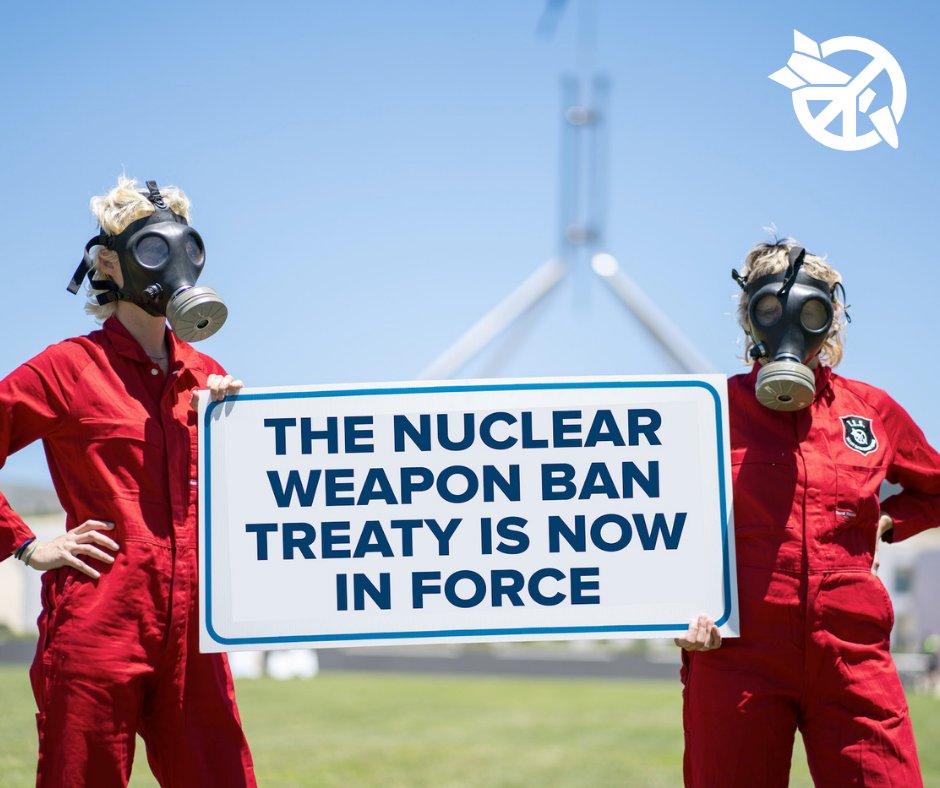Because the nuclear weapons prohibition treaty (Tpan) is symbolic

On January 22, 2021, the Nuclear Weapons Prohibition Treaty (Tpan, in English Tpnw) comes into force as a rule of international law. What it envisages and why its relevance in foreign policy is symbolic. Giuseppe Gagliano's analysis
On January 22, 2021, the Nuclear Weapons Prohibition Treaty (Tpan, in English Tpnw) comes into force as a rule of international law.
What does it provide in a nutshell?
The Tpan obliges each State that adheres to it to “not: (a) Develop, test, manufacture, manufacture, or acquire, possess or possess reserves of nuclear weapons or other nuclear explosive devices; (b) Transfer to any recipient any nuclear weapons or other nuclear explosive devices or control over such weapons or explosive devices, directly or indirectly; (c) Receive the transfer or control of nuclear weapons or other nuclear explosive devices, directly or indirectly; (d) Use or threaten the use of nuclear weapons or other nuclear explosive devices; (e) Assist, encourage or induce, in any way, anyone to engage in any activity which is prohibited by a State Party to this Treaty; (f) Seek or receive assistance, in any way, from anyone to commit any activity which is prohibited by a State Party to this Treaty; (g) Permit any deployment, installation or dissemination of nuclear weapons or other nuclear explosive devices on its territory or in any place under its jurisdiction or control. ”
This treaty arose 16 years ago on the initiative of the International Campaign for the Abolition of Nuclear Weapons (Ican), which – thanks to an effective lobbying campaign – managed to bring the complex issue before the UN which on 7 July 2017 approved the text of the Tpan.
The treaty was supported by 123 countries, with 38 votes against. States that have ratified the agreement include Nigeria, Malaysia, Ireland, Malta, Thailand, Mexico, South Africa, Bangladesh, New Zealand, Vietnam and the Vatican City. In October, Honduras became the 50th country to sign the treaty.
Specifically, the United States, the United Kingdom, France and Russia have expressed their opposition in the same way as Israel. On the other hand, China, India and Pakistan abstained.
What is the concrete relevance in terms of foreign policy? Purely symbolic.
It is no coincidence that Jens Stoltenberg, NATO Secretary General , declared in November that the treaty does not take into account the reality of global security. "Giving up our deterrent without any guarantee that others will do the same is a dangerous option," Stoltenberg said, stressing: "A world in which Russia, China, North Korea and others have nuclear weapons, but NATO does not, not it's a safer world ”.
However, a weak but decisive point for the credibility of this treaty can be identified: that is, the fact that the States that join the Tpan can withdraw from it if the "supreme interests of a country" are at risk (Art. 17). In this way it is argued – albeit implicitly – that nuclear weapons may be indispensable for the safeguarding of national interests, thus contradicting the purpose of the Treaty.
Ultimately, to think that a nuclear power could unilaterally choose to eliminate nuclear deterrence is simply unrealistic. In fact, it would find itself in a situation of strategic inferiority with respect to other powers, thus destroying the key concept of the cold war strategy but also of international politics, namely the balance of power.
However, this should come as no surprise. in fact, once again the UN is traversed by incurable contradictions and, in our view, insurmountable, given that the UN Security Council is made up of the main architects of nuclear strategy at a global level.
Similarly, the European Union, on the one hand, promotes intercultural pedagogy in the ministries of education, but on the other hand promotes the export of arms to African and Middle Eastern countries.
This is a machine translation from Italian language of a post published on Start Magazine at the URL https://www.startmag.it/mondo/perche-il-trattato-di-proibizione-delle-armi-nucleari-tpan-e-simbolico/ on Wed, 27 Jan 2021 07:05:33 +0000.
